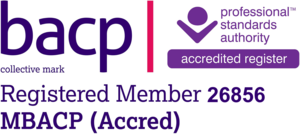Could trauma be the source of your suffering?
Over the years through my work, I have come to the conviction that most of the time when people come to me for counselling, underlying their presenting issues are two major causes for their suffering: trauma and/or loss. When I talk about loss, what I mean is not just the loss of a loved one. Loss comes in many forms: loss of health, status, connection, identity, possession, security, understanding and many others. Loss and trauma can be very closely connected. You might think, like most people, when you hear the word trauma, that it is something only people suffer who had terrible experiences, like war veterans, rape victims or people who have been involved in accidents. Unfortunately this is not the whole story. A more accurate definition of psychological trauma is this:
Psychological trauma is the unique individual experience of an event or enduring conditions, in which:
- The individual’s ability to integrate his/her emotional experience is overwhelmed, or
- The individual experiences (subjectively) a threat to life, bodily integrity, or sanity. (Pearlman & Saakvitne, 1995, p. 60)
Thus, a traumatic event or situation creates psychological trauma when it overwhelms the individual’s ability to cope, and leaves that person fearing death, annihilation, mutilation, or psychosis. The individual may feel emotionally, cognitively, and physically overwhelmed. The circumstances of the event commonly include abuse of power, betrayal of trust, entrapment, helplessness, pain, confusion, and/or loss. For example, a small child taken to hospital for an operation might well be traumatised by the experience, or a person being bullied for extended periods of time can be traumatised.
Trauma comes from Greek and means literally 'wound'. but it is not like any odd wound, it is a wound that cannot heal. Like a boil it continuous to fester away within us. Here are symptoms that are associated with trauma. To be sure many of these symptoms can have other causes then trauma. However, the more symptoms apply to you, the more likely it is that trauma is at the heart of your problems.
Symptoms of trauma
When you are traumatised you might:
Re-experience
- Intrusive memories of the event/s
- Distressing dreams
- Flashbacks or feeling that the trauma is reoccurring
- Intense distress when exposed to cues that you associate with the traumatic event ( this can be subconscious)
- Marked physiological responses to cues
Hyper-arousal
- Constant irritability/anger or feeling irritable/angry very quickly and easily
- Reckless and self destructive behaviour
- Hyper-vigilance (you are constantly checking for danger)
- Exaggerated startle (you get scared easily, jump at shadows etc.)
- Problems with concentration
- Sleeping difficulties
- Unable to relax physically
- Feeling wired all the time
- Chronic, unexplained pains
Avoidance
- Inability to remember all or parts of trauma
- Avoidance of distressing memories, thoughts or feelings about trauma. We often us addictive or compulsive behaviours to avoid these.
- Avoidance of reminders e.g. People, places, objects that cause distress. We might develop phobias.
- Feeling emotionally or psychologically numb, or disconnected
- Numbness in the body, an inability to feel parts of your body
Negative thinking/mood
- Negative beliefs or expectations
- Distorted thinking including blaming of self or others
- Persistent negative affect and lack of positive emotions
- Lack of interest in future
- Feelings of detachment
- Inability to feel positive emotions
- Depression, anxiety
Disclaimer
I am not a clinical psychologist and therefore do not use diagnosis in my work. If you think you have trauma or depression, or any other mental health issue I am happy to work with you on the basis of your own assessment. Have a look here to find out how I work. I might suggest that the cause of your problems could be trauma. This is not a diagnosis. If you want to be sure that you suffer from trauma or any other mental health problem you need to ask your GP to give you a diagnosis.


